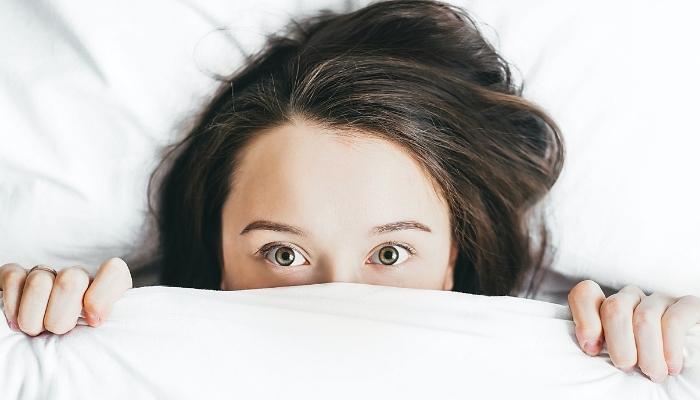
Finding work-life balance has always been challenging for some --- especially for working mothers. The demands of work, home and family responsibilities have only been amplified by in the last couple of years. The pandemic has radically shifted the way we work and how much we work, which tends to extend beyond the traditional 8-hour work day.
For some, sleep and other self-care practices took a backburner. Adults require an average of 7 to 9 hours of sleep per night. Forgoing your sleep can have adverse effects on your overall health, which is why it’s best to resolve any sleep issues sooner rather than later. If you find yourself stuck, not knowing where to start, here are some tips.
Create a bedtime routine
Consistent bedtime routines aren’t just for young children -- they are important for adults as well.
The act of preparing for bedtime at the same time every night, signals to your brain that it’s time to sleep. Bedtime routines can look different for everyone, but it usually involves a series of winding down activities, such as reading or taking a warm shower. These relaxing activities are meant to transition you from out of your day and into a more calm, peaceful state. In fact, studies show that bedtime routines help reduce late-night stress and anxiety, which can lead to insomnia.
Manage your time
While we don’t have control over external stressors, we can employ small tactics to lessen certain time-related stressors at home. For instance, structuring your off-work time may seem counterintuitive, but it could help you gain more free time. Start by paying attention to how much time you spend doing household chores and other non-negotiable responsibilities such as cooking dinner, helping kids with schoolwork, or walking the dog. Then, consider if there are ways to do them more efficiently – perhaps you can cut back on time spent cooking by doing more meal prep, making easier meals, or ordering in once a week. Or maybe you’d rather go further by enlisting your teenagers to help with some easy tasks or outsource help for chores like cleaning, dog walking, etc.
The truth is, time is something we can never get back, so being a good steward of our precious hours can be a winning strategy to ensure we have more time for us (which includes sleep), for family and doings thing we enjoy.
Limit screen time before bed
You’ve heard it many times before because it has been scientifically proven – turning off all your electronics at least 30 minutes before bedtime can help you fall asleep faster. This is because blue light emanating from screens interferes with melatonin levels.

Basically, your brain gets fooled into believing that it’s not time to sleep when it is! But if you’re having a hard time staying away from your phone or computer, consider setting an alarm (or possibly two) to give you enough time to wrap up your work. If you can’t avoid screen time before bed, try blue-light-blocking glasses or an app that reduces blue light emission.
Make relaxation a habit
Employing relaxing techniques can help you with easing into a bedtime routine. Try listening to relaxing music, doing yoga or simple stretches, or taking a warm shower. As mentioned earlier, creating a transition before bedtime is important as it lets your brain know that the day is over – it’s time to clear your mind from focusing on your to-do list. If you are someone who struggles with late-night anxiety, create a to-do list before going to bed – sometimes putting your thoughts on paper can lessen rumination. Mindfulness meditation is another useful tool to help anchor yourself in your body and focus on the present moment.

Sleep quality is connected to mental health
Sometimes it only takes a few lifestyle tweaks to improve sleep quality, but other times, sleep troubles could be a symptom of a larger issue. If you have been practicing sleep hygiene consistently but to no avail, consult a doctor.
Researchers have seen a surge in sleep changes and sleep disorders due to stress and mental health issues caused by the pandemic, therefore, make it point to care for your mental well-being as well.
Boost your comfort with our Sleep selection
Since comfort is key to getting a good night’s rest, make sure you are sleeping on a mattress that suits your specific sleep needs. Sleep needs differ from person to person - some people prefer innerspring, firm mattresses with adjustable bases, while others prefer soft memory foam with cooling technology. You can choose from a vast selection of mattresses, pillows, and accessories we have to offer. Not sure what products are best for you? Reach out to one of our bedding experts today.